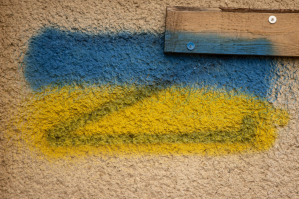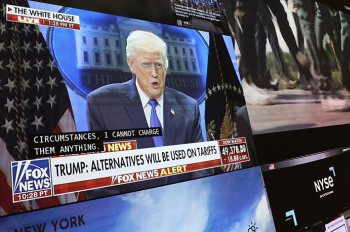
Teenagers in Russian-occupied areas of Ukraine now face the prospect of life imprisonment for “sabotage” after President Vladimir Putin approved amendments lowering the age of criminal liability, even as international negotiations continue over ending the war.
Putin signed changes to the Criminal Code that reduce the minimum age of liability from 16 to 14 for a range of offenses classified by Moscow as terrorism or sabotage. “The age of criminal liability is lowered from 16 to 14 for aiding terrorist activity, organizing a terrorist cell or the activities of a terrorist organization, as well as for committing acts of sabotage,” the Kremlin said in a Nov. 17 press release.
The new provisions mean children could receive life sentences under Russia’s expanding definition of “sabotage,” according to Mykola Kuleba, an evangelical and the co-founder and head of Save Ukraine. Kuleba previously served as Ukraine’s Commissioner for Children’s Rights from 2014 to 2021, led the Kyiv Children’s Service from 2006 to 2014, and co-founded the Ukraine Without Orphans Alliance.
“For Ukrainian teenagers living under Russian occupation, this is not a theoretical threat. It is a direct extension of a system designed to criminalize their identity,” Kuleba wrote on X.
“In occupied regions, children already live under surveillance. Their phones are checked, their social media monitored, their behavior evaluated through ‘profiles’ created by occupation authorities. Any sign of Ukrainian consciousness — reading independent media, refusing a Russian school, supporting Ukraine — is routinely treated as suspicion, disloyalty, or ‘extremism.’
“Now these same children can be branded ‘terrorists.’”
Kuleba pointed to the case of two 16-year-old boys from occupied Berdyansk — Tigran Ohanyan and Mykyta Hanganov — who were accused of sabotage, allegedly tortured and killed, and whose bodies have still not been returned to their families.
“Their story shows exactly how Russia applies these laws: not for justice, but for intimidation and control,” he said. “For Ukrainian children, the message is simple and terrifying: you can be punished not for what you did, but for who you are.
“This is a grave violation of international law and a direct attack on childhood itself. No state committed to human rights can ignore a system that treats teenagers as enemies of the state for resisting an occupying regime.”
Save Ukraine, a charitable nongovernmental organization, rescues children from occupied territories, protects them from persecution, and provides trauma care. Yet thousands remain trapped under policies that now grant legal cover to abuse, said Kuleba, who was recognized as an “outstanding human rights activist” at the 2023 Magnitsky Human Rights Awards.
“The world must speak about this clearly. Criminalizing children is not security policy — it is state violence,” he said.






